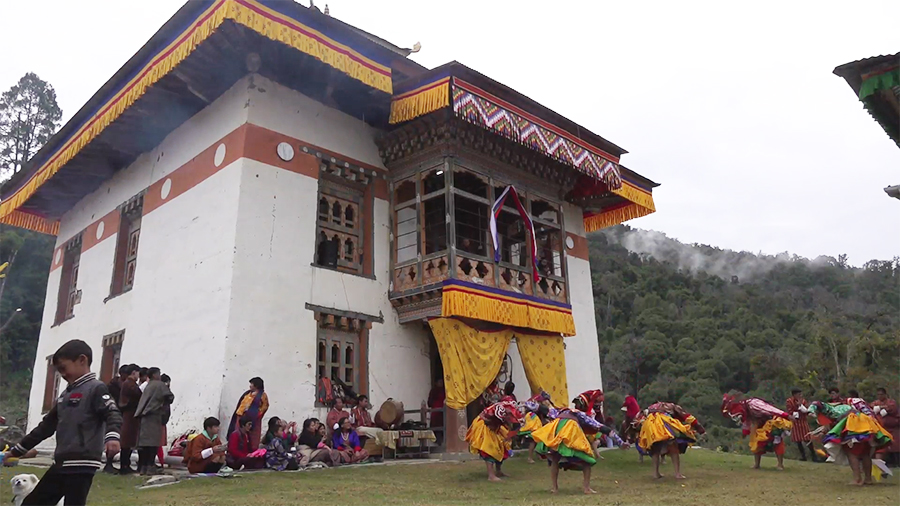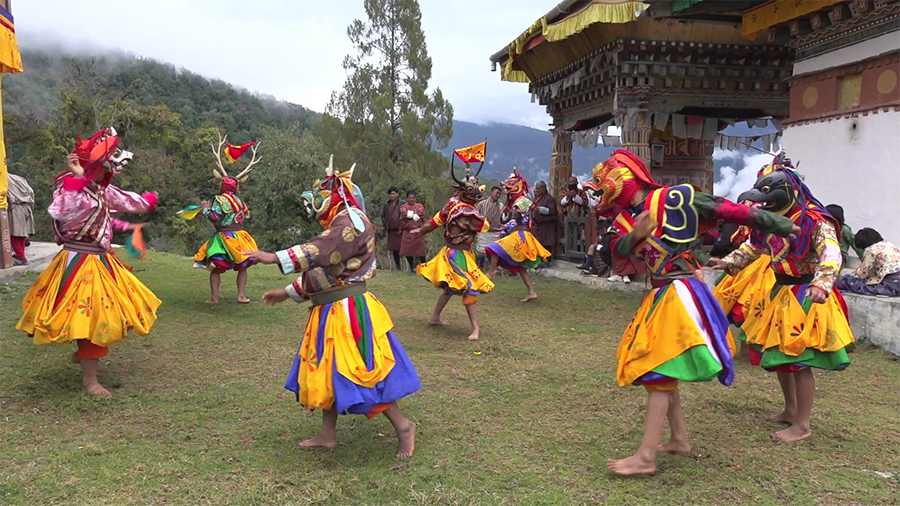
With no budget set aside for conducting local festivals such as Tshechus in villages, it is becoming challenging for the people and the local leaders to conduct them as in the past. Similarly, a sacred festival in Wangdue Phodrang’s Daga Gewog called the Uma Tshechu, dating back to the 17th century is facing the same fate. The festival is conducted through donations collected from locals but this practice is becoming unsustainable.

The annual Uma Tshechu is considered to be one of the popular festivals in the community. It is believed to have been instituted during the time of Uma Penlop Jatang Pekar Tashi in the 17th century.
The two-day annual Tshechu is performed on the second lunar month at Uma Dzong and Uma Choeling Goenpa on alternate days.
The mask dances performed during the festival are unique from the ones showcased in Dzongs. For the festival, locals hire a mask dance instructor from Genekha in Thimphu annually as the festival shares similar mask dances as that of Chezhi Goenpa in Genekha.
With prices of goods and services rising rapidly, people say it is difficult to fund the festival from donations. Due to the budget constraint, people say the spirit of preserving this culture is gradually diminishing.
“The festival is in a sorry state now. We have somehow managed to conduct it so far. But now people and the mask dancers are asking me if there is anything that the gewog administration can do to keep it going. However, the gewog administration has no authority to allocate a budget for the preservation of such festivals,” said Kinga, Daga Gup, Wangdue Phodrang.
More than 30 dancers and mask dance performers are required to perform at the festival. Each of them has to be paid Nu 300 per day during the practice sessions and Nu 1,000 during the two-day main event. The gup says at least Nu 300,000 is required annually to conduct the festival in total.
“If we need to practise mask dance thoroughly, we have to hire the instructors. And when we hire instructors, we have to pay them. It takes months to learn the age-old and sacred mask dances as the steps are unique and the dancers have to also memorise the Gurmasor religious songs. That’s why we have to also compensate them accordingly,” added Kinga, Daga Gup.
The residents fear that if the festival dies out, unexpected natural calamities and disasters could strike the community. They say the festival is not merely a gathering of family and friends but also a ceremony to seek peace and blessings in the community.
“Over the years, we could notice that the steps of mask dances are not as authentic as the indigenous ones and the number of spectators is also declining. If the festival disappears, it also means the disappearance of the prestige of the community. We are concerned about the situation and as elderly residents, we often remind the mask dancers to correct the steps whenever possible,” said Chimi, a resident of Kamichhu-Uma Khamaed.
“There are not many well-to-do people here but we put all our resources together to organize the festival. However, to keep the custom alive, we would be grateful if the government could support us,” said Phub Jamtsho, a resident of Uma Khatoed.
Officials said there is no separate budget allocation by the government to conduct such cultural activities in the communities.
Until an adequate fund is allocated to conduct of such festivals, people will have to continue depending on the generous donors annually or risk losing their culture.
Changa Dorji, Wangdue Phodrang
Edited by Kipchu












